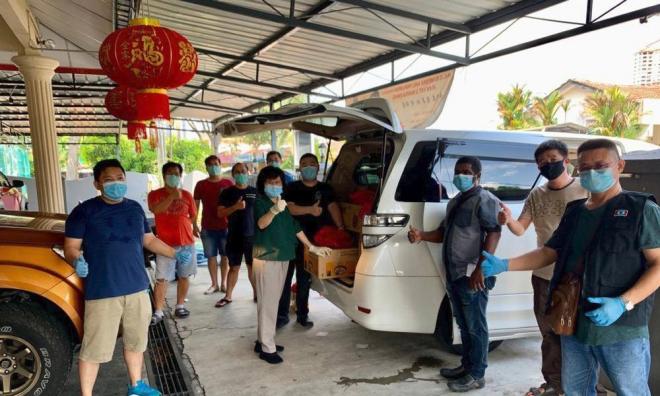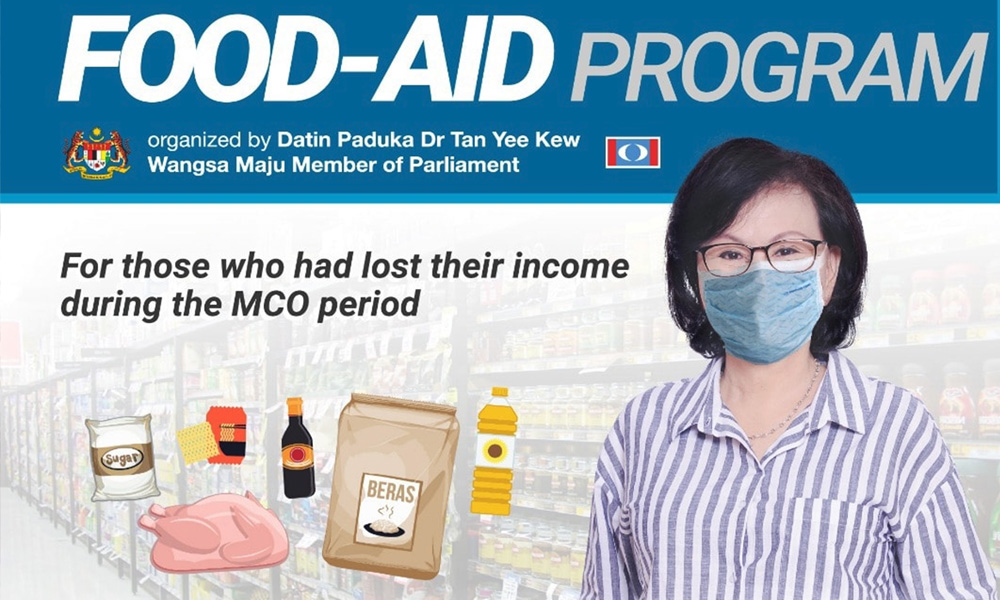
CORONAVIRUS | Wangsa Maju MP Tan Yee Kew has called on the government to take urgent measures to help the urban poor cope with their reduced circumstances under the movement control order (MCO) which took effect on March 18.
Citing the various responses she has received for the Food Aid programme in her parliamentary constituency, she said that it’s clear many are suffering and in desperate need of aid.
“We have distributed food rations to 1400 families in Wangsa Maju since April, and many are struggling to cope,” Tan told Malaysiakini.
She said there were many online applicants to the programme and that while some were already receiving welfare aid, for example the disabled and single mothers, there were many who have suddenly found themselves in desperate circumstances.
“In the short term, of course, we have to provide charitable and immediate relief to the urban poor. I would like to call on the government to consider implementing a food coupon system. This can be like the RM100 public transport scheme introduced by the Pakatan Harapan government.
“In the long term, we have to address the issue of low wages. It is simply not enough to survive. There is also not enough low-cost housing in KL. The waiting list is at 17,000 and the government has to expedite this and maybe look at other methods because we know the land is limited.”

According to Tan, her team did research on the applicants so as to be able to better serve their needs at this time. Aside from the information submitted online, the team would call applicants, one by one, for clarification as they wanted to be able to analyse the impact of the MCO impact.
“The majority of the 1,400 recipients are Malays that is 967 (69 percent), which is understandable as a majority of the Wangsa Maju population are Malays. There are 240 (17 percent) Chinese recipients and 185 (13 percent) Indians,” said Tan.
According to voter statistics at GE14, the voter base is 61 percent Malay, 30 percent Chinese, eight percent Indians and two percent others.
“The largest age group of recipients are those between 31 and 55 years old (57 percent), which are the normal working age group and they represent the main bread earners of the family,” she said.
Tan cited three cases of people who would not normally have needed aid. “One was an old Malay lady who is retired and normally doesn’t required aid. She said her son who is a hawker used to give her money to buy food. But now he has no business and they are struggling.
“Another one is a young Chinese man who wrote to me three or four times. He said 'can you just get me some rice'. He was quite young in his thirties, a freelance air conditioner repairman. But now he can’t go out to work. He has a wife and young kid, but sometimes people live from hand to mouth and never have much savings. When the income source is cut off, they are immediately in trouble,” said Tan.
She cited another individual in his 40s. He was a sales executive on a comfortable income with a family and elderly parents.
"They were able to manage but then he was laid off in December, and even before MCO, they had spent a lot of savings already. Now they are desperate.”

Tan said based on the application feedback, retirees and people who still need to earn their living above 56 constitute quite a substantial percentage (33 percent) of the recipients.
“Young people below 30 years old are few, only 10 percent. But 41 percent of the recipient’s families still have young children below the age of five.
"In the long term, we must look into the wage structure. It’s good that the government has given incentives to the small-and-medium under the stimulus package but the government cannot subsidise a large population for long. The SME must prosper with government support and then raise wages,” she said.
According to Tan, most of the recipients are self-employed hawkers and small traders, cleaners, taxi/Grab drivers, sales attendants, marketing agents, despatch boys, cooks, drivers, clerks, junior technicians, teachers and odd-job workers.
“Their normal incomes are generally low even prior to the enforcement of MCO and only 13 percent earn more than RM2,000,” she said.
“While many complained of loss of income or reduced income during this period, the hawkers appear to suffer the biggest loss.
“Out of the total of the 228 hawker/small traders who applied, 97 responded to our questions, and 84 percent of them claimed they had zero income since the enforcement of MCO.
“Even among wage earners who are able to maintain their jobs, many are either getting reduced salaries or on no-pay leave.
“The problem of urban poverty has been highlighted for more than 20 years, yet emphasis has continued to be given to the rural poor and it was not until the last two years that urban poverty was acknowledged,” she claimed.
Tan called for a concrete plan and substantial funds allocated for the elimination of urban poverty.
- Mkini



No comments:
Post a Comment
Note: Only a member of this blog may post a comment.